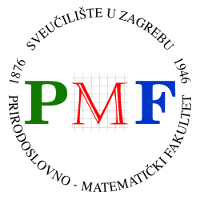Mechanisms of Human Diseases
Teacher: dr. Filip Sedlić, assistant professor, MD
Semester: second
ECTS: 3
Required course
Students should acquire capacity to understand:
- general disease elements and mechanisms,
- specific processes underlying common human diseases.
Following completion of the course students will be able to:
- identify general factors leading to cell and organ damage,
- describe body’s compensatory response to specific disease elements,
- analyze mechanisms of energy metabolism disorders and ischemia-reperfusion injury,
- explain mechanisms of selected disorders of hormones,
- characterize factors leading to occurrence and progression of malignant tumours,
- describe pathways of selected disorders of cardiovascular system,
- explain mechanisms of selected disorders of respiratory system,
- analyze mechanisms of selected disorders of kidney system and
- describe mechanisms of selected disorders of gastrointestinal system and liver.
- Introduction. Health and diseases: principles of homeostasis (feedback and feedforward regulatory loops); dynamic systems; normal range; laboratory data quality control; mechanisms of adaptation; autophagy; unfolded protein response; hypertrophy; hyperplasia; atrophy; dystrophy; non-linear responses of biological systems; ageing.
- Disease etiology and pathogenesis: genetic, epigenetic and environmental (physical, chemical and biological) factors; infection; oxidative stress.
- Energy metabolism disorders: ischemia-reperfusion injury; hypoxia; hypoglycemia; anemia; calcium overload; reactive oxygen species; mitochondrial permeability transition pore, preconditioning.
- Disorders of osmolarity, body fluid compartments and electrolytes: edema (hemodynamic, oncodynamic, lymphodynamic and angiomural); disorders of osmolarity and hydration; hypovolemia; disorders of potassium; disorders of calcium (disorders of vitamin D and parathyroid hormone).
- Acid-base disorders: metabolic and respiratory acidosis and alkalosis; lung and kidney diseases; diabetic ketoacidosis; lactacidemia; diarrhea; vomiting.
- Inflammation and immunity disorders: mechanisms of inflammation; cytokines, inflammatory and immune cells in pathological processes; sepsis; autoimmune diseases; immunodeficiencies; hypersensitivity reactions and allergy.
- Pathophysiology of cancer: oncogenesis; characteristics of cancer; molecular changes in cancer cells; metabolism of cancer cells.
- Endocrinopathies: general concepts in hormonal disorders; diabetes mellitus; disorders of: growth hormone, glucocorticoids, sex hormones and thyroid hormones.
- Cardiovascular diseases: myocardial infarction; cardiomyopathies; cardiac decompensation; arrhythmias; hypertension; atherosclerosis; shock.
- Respiratory diseases: causes of respiratory disorders; hyper- and hypoventilation; disorders of pulmonary mechanics; disorders of ventilation-perfusion ratio; pulmonary embolism; pneumonia; obstructive and restrictive lung diseases.
- Kidney diseases: causes of kidney diseases; disorders of glomerular membrane, nephrotic syndrome and proteinuria, disorders of kidney tubules; renal failure (uremic toxins, electrolyte disorders, blood pressure changes, acid-base disorders).
- Gastrointestinal and liver diseases: ulcers and gastrinoma; disorders of digestion and absorption; pancreatitis; ileus; liver failure and cirrhosis (jaundice, encephalopathy, portal hypertension and ascites, metabolic disorders, coagulopathy, hypoalbuminemia).


